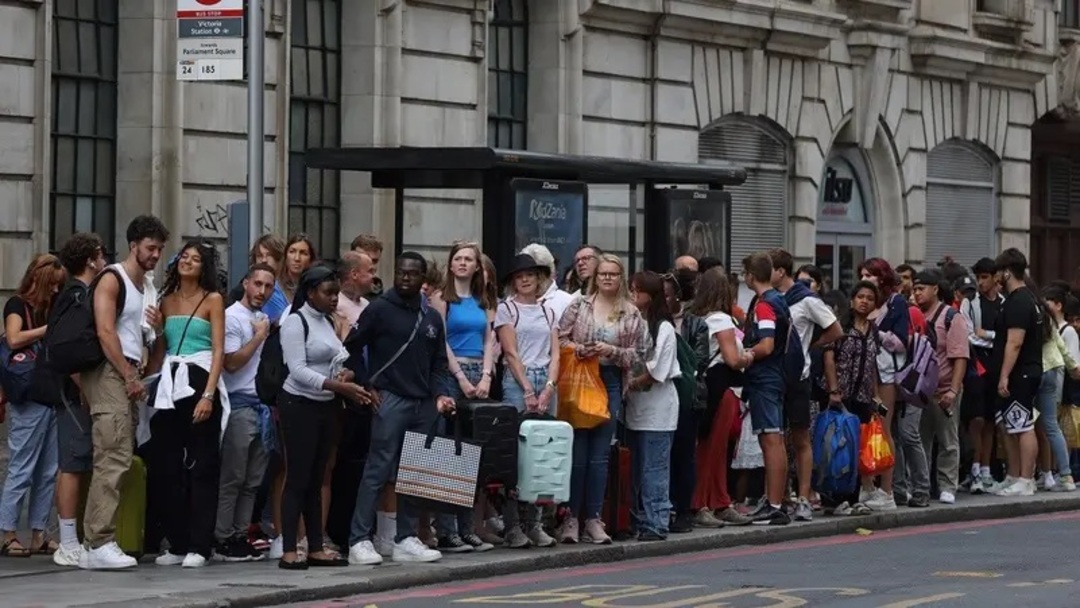-
Sources say UK to hold emergency mini-budget on September 23

Britain’s new finance minister, Kwasi Kwarteng, will deliver an emergency mini-budget on September 23 to give more details about support to help ease the country’s cost-of-living crisis, government sources said on Thursday (Sep 15).
Prime Minister Liz Truss took office last week after winning the contest to lead the governing Conservative Party with a promise to immediately cut taxes and redouble efforts to promote economic growth.
Hours before Queen Elizabeth’s death last week, Truss outlined a plan to cap consumer energy bills for two years and funnel billions into propping up power companies.
Truss told parliament that Kwarteng would make a formal fiscal statement about the expected cost of her plans before the end of the month.
The period of national mourning following the queen’s death has left ministers with little room to fit it in, making a date at the end of next week the only option.

Investors are keen to hear details about the vast cost of the plans, with estimates ranging between £100 billion and £200 billion ($115-230 billion). But they may be disappointed: the Office for Budget Responsibility will not be publishing detailed forecasts next Friday, one source said.
British government bond prices have fallen sharply over the last month in anticipation of Truss’s tax and spending plans, because they imply a sharp increase in government borrowing and with it issuance of gilts.
Cost of living crisis: UK’s largest port faces eight-day strike
Truss said average household energy bills would be held at around 2,500 pounds a year for two years, staving off a major price leap expected next month that threatened the finances of millions of households and businesses.
While that should stop headline inflation surging towards 20 percent in the coming months - as some economists expected in the absence of a freeze in energy bills - the Bank of England may need to keep interest rates higher for longer, given the improvement to the outlook for households’ spending.
Britain’s response to the cost-of-living crisis has differed from its European peers, notably in Truss’s rejection of a windfall tax on energy companies’ profits.
The Russian invasion of Ukraine: Considerable rise of the cost of living in Britain
On Wednesday the European Union’s executive outlined plans to raise more than $140 billion from energy firms to help shield households and businesses from spiraling prices.
France will cap power and gas price increases for households at 15 percent next year, Prime Minister Elisabeth Borne said on Wednesday, to ease the pain for consumers of Europe's worst energy crisis in decades.
Source: alarabiyaenglish
You May Also Like
Popular Posts
Caricature
BENEFIT Sponsors BuildHer...
- April 23, 2025
BENEFIT, the Kingdom’s innovator and leading company in Fintech and electronic financial transactions service, has sponsored the BuildHer CityHack 2025 Hackathon, a two-day event spearheaded by the College of Engineering and Technology at the Royal University for Women (RUW).
Aimed at secondary school students, the event brought together a distinguished group of academic professionals and technology experts to mentor and inspire young participants.
More than 100 high school students from across the Kingdom of Bahrain took part in the hackathon, which featured an intensive programme of training workshops and hands-on sessions. These activities were tailored to enhance participants’ critical thinking, collaborative problem-solving, and team-building capabilities, while also encouraging the development of practical and sustainable solutions to contemporary challenges using modern technological tools.
BENEFIT’s Chief Executive Mr. Abdulwahed AlJanahi, commented: “Our support for this educational hackathon reflects our long-term strategic vision to nurture the talents of emerging national youth and empower the next generation of accomplished female leaders in technology. By fostering creativity and innovation, we aim to contribute meaningfully to Bahrain’s comprehensive development goals and align with the aspirations outlined in the Kingdom’s Vision 2030—an ambition in which BENEFIT plays a central role.”
Professor Riyadh Yousif Hamzah, President of the Royal University for Women, commented: “This initiative reflects our commitment to advancing women in STEM fields. We're cultivating a generation of creative, solution-driven female leaders who will drive national development. Our partnership with BENEFIT exemplifies the powerful synergy between academia and private sector in supporting educational innovation.”
Hanan Abdulla Hasan, Senior Manager, PR & Communication at BENEFIT, said: “We are honoured to collaborate with RUW in supporting this remarkable technology-focused event. It highlights our commitment to social responsibility, and our ongoing efforts to enhance the digital and innovation capabilities of young Bahraini women and foster their ability to harness technological tools in the service of a smarter, more sustainable future.”
For his part, Dr. Humam ElAgha, Acting Dean of the College of Engineering and Technology at the University, said: “BuildHer CityHack 2025 embodies our hands-on approach to education. By tackling real-world problems through creative thinking and sustainable solutions, we're preparing women to thrive in the knowledge economy – a cornerstone of the University's vision.”
opinion
Report
ads
Newsletter
Subscribe to our mailing list to get the new updates!






















